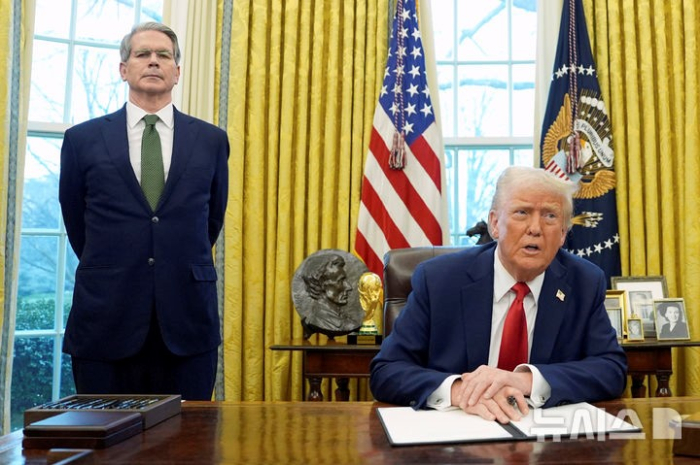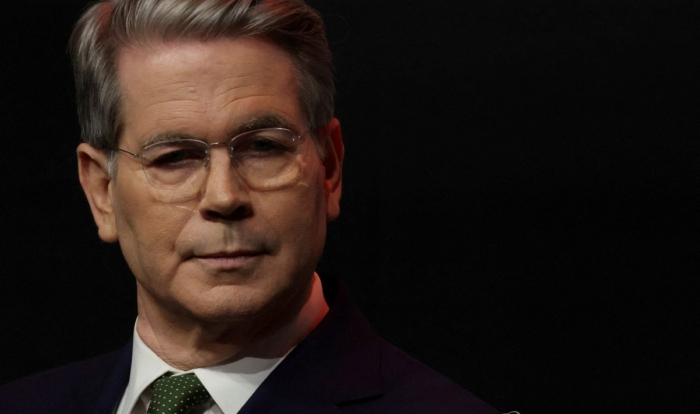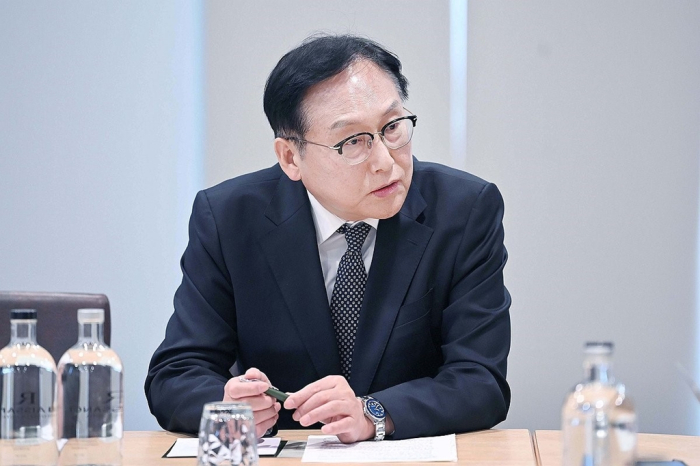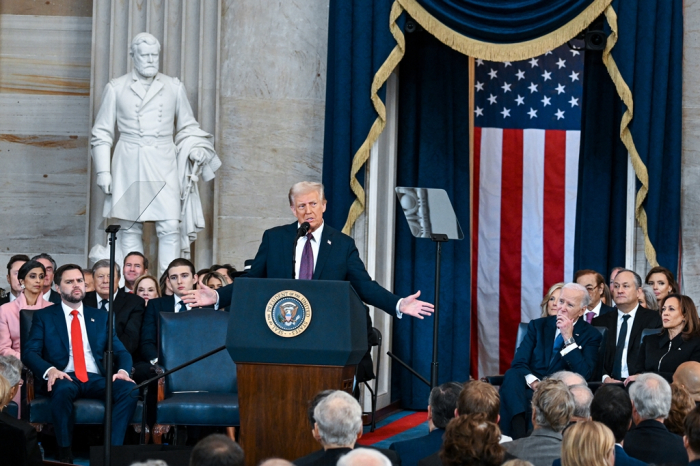S.Korea wary of inclusion on US ‘Dirty 15’ nations list for reciprocal tariffs
With its 2024 trade surplus of $55.7 billion versus the US, Korea is working to avoid heavier tariffs
By Mar 19, 2025 (Gmt+09:00)
LG Chem to sell water filter business to Glenwood PE for $692 million


KT&G eyes overseas M&A after rejecting activist fund's offer


Kyobo Life poised to buy Japan’s SBI Group-owned savings bank


StockX in merger talks with Naver’s online reseller Kream


Meritz backs half of ex-manager’s $210 mn hedge fund



WASHINGTON, D.C. – The US government plans to unveil country-specific reciprocal tariffs on April 2, with particular attention to nations imposing significant duties on US goods – a move that could have major implications for South Korea.
Officials in Seoul said that Korea, long scrutinized by Washington for its trade surplus with the US, could be slapped with heavier duties.
Under President Donald Trump’s previous administration, the US government renegotiated the Korea-US Free Trade Agreement (KORUS FTA), and analysts now say that the new Trump administration could bring further revisions or even a complete overhaul of the deal.
US Treasury Secretary Scott Bessent on Tuesday told Fox Business Network that Trump on April 2 would give trading partner countries a reciprocal tariff number that reflects their own rates, non-tariff trade barriers, currency practices and other factors, but could negotiate to avoid a "tariff wall."

“For some countries, it (the number) could be quite low, for some countries, it could be quite high,” said Bessent.
He said some countries might not face tariffs because they have already negotiated deals.
‘DIRTY 15' NATIONS
Bessent said countries that fail to reduce their trade barriers will face steeper tariffs aimed at protecting the US economy, its workers and industries.
Much of the technical work on the expected tariffs will be led by the US Trade Representative’s office, headed by Jamieson Greer, and the Department of Commerce.
Calculating the tariff rates is complicated by Trump's vow to reflect the impact of non-tariff barriers, including taxes and other measures that US officials argue give other countries’ firms an unfair advantage.

The treasury secretary said that the Trump administration is particularly focused on the 15% of countries that have the highest tariffs and large trading volumes with the US, which he referred to as the “Dirty 15.”
These countries also often have regulations governing domestic content or food safety that conspire to keep US products out of their markets, he said.
KOREA IN THE CROSSHAIRS?
Although he refrained from naming the countries likely to be in the Dirty 15, there is growing speculation that South Korea could be one of them.
Industry officials said the prospect of Korea being included in the targeted nations is growing, given past tensions over trade.
Trump has repeatedly criticized Korea’s trade practices, claiming in a congressional address on March 4 that Korea's average tariff rate is “four times higher” than that of the US.

While Korea’s FTA with the US eliminates tariffs on most goods, Trump’s remarks underscore his administration’s perception of an imbalance, analysts said.
White House National Economic Council Director Kevin Hassett mentioned Korea, alongside Europe and China, in a March 17 CNBC interview, while attributing the persistent US trade deficit to their non-tariff barriers.
US industry groups have also accused Korea of maintaining restrictive trade policies, citing its ban on beef imports originating from US cattle older than 30 months and stringent agricultural inspection procedures.
Korea has been making diplomatic efforts to avoid new US tariffs amid concerns about its trade surplus, which reached $55.7 billion – the ninth largest with the US – in 2024.
With trade relations at a critical juncture, analysts said Korea must now decide whether to make concessions or brace for heightened trade tensions in the months ahead.
Write to Sang-eun Lucia Lee and Jeong-Jin Eun at selee@hankyung.com
In-Soo Nam edited this article.
-
 Business & PoliticsKorea sees record February auto exports before looming Trump tariffs
Business & PoliticsKorea sees record February auto exports before looming Trump tariffsMar 18, 2025 (Gmt+09:00)
2 Min read -
 Shipping & ShipbuildingSamsung Heavy eyes $5.5 bn FLNG ship deals as Trump sanctions China
Shipping & ShipbuildingSamsung Heavy eyes $5.5 bn FLNG ship deals as Trump sanctions ChinaMar 11, 2025 (Gmt+09:00)
3 Min read -
 EnergyTrump-driven energy boom spurs Korean firms to hike US gas investments
EnergyTrump-driven energy boom spurs Korean firms to hike US gas investmentsMar 10, 2025 (Gmt+09:00)
4 Min read -
 Business & PoliticsTrump says Korea interested in Alaska gas project; Korean firms skeptical
Business & PoliticsTrump says Korea interested in Alaska gas project; Korean firms skepticalMar 05, 2025 (Gmt+09:00)
3 Min read -
 Shipping & ShipbuildingHD Hyundai Marine sets sights on LNG vessel retrofitting in Trump era
Shipping & ShipbuildingHD Hyundai Marine sets sights on LNG vessel retrofitting in Trump eraFeb 05, 2025 (Gmt+09:00)
3 Min read -
 Business & PoliticsSamsung, LG consider moving electronics plants to US from Mexico
Business & PoliticsSamsung, LG consider moving electronics plants to US from MexicoJan 21, 2025 (Gmt+09:00)
4 Min read -
 Leadership & ManagementHyundai’s José Muñoz sees new Trump policy, China's rise as opportunity
Leadership & ManagementHyundai’s José Muñoz sees new Trump policy, China's rise as opportunityNov 25, 2024 (Gmt+09:00)
3 Min read


